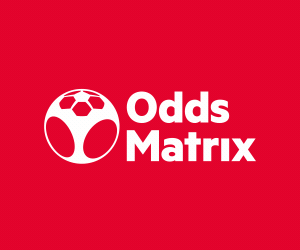Industry News
Curacao’s Gambling Overhaul: Adjusting the Scheduling for Reform

Acquiring an online casino license is a challenging task, and there are a lot of protocols and requirements to clear before a gambling license can be issued. In the online casino industry, it is considered that the most accessible jurisdiction and regulator to obtain a license from is Curacao. Due to the low entry barriers, such as low license fees and moderate monitoring of operators, many prospective online casinos’ go-to licensing regulator is Curacao. During the Covid-19 pandemic, Curacao faced various financial struggles, which resulted in the regulator receiving aid from the Dutch Government. Due to the involvement of the Dutch government, Curacao was encouraged to overhaul their gambling licensing requirements and a reform was drafted. Below we provide an overview of the current Curacao gambling regulations and the proposed reform.
Current System in Curacao
Compared to industry standards, the current gambling legislation in Curacao is outdated. Currently, more than 400 online casinos have a Curacao iGaming license, and these casinos have paid a low licensing fee and are not monitored regularly. With the current system, four businesses have ‘master licenses,’ which in simple terms, mean they have the discretion to award iGaming licenses to betting operators on behalf of the government. When you consider all factors of the current system, it is easy to notice that the liberal nature of the current regime has many red flags. The call for a change of the regime was finally answered when the government of Curacao and the Curacao Gaming Control Board decided to follow the advice of the Dutch government and create a new gambling board and introduce updated legislation.
Proposed Reforms
The proposed reforms and changes planned for the online gambling regulation in Curacao are focused on key features which include implementing money laundering measures and licensee employment requirements. The changes drafted by the Curacao government are listed below:
- Establish a new gambling regulator (Curacao Gaming Authority) to oversee licensing and gaming operations
- Issuing of B2C licenses and B2B licenses for operators
- Updated licensing fees for operators; starting at €400 per application, €12000 per annum once approved, and €250 monthly for URL
- A minimum of three employees from the prospective operator to be hired into key positions in the company and be located on the island of Curacao
- Enhanced monitoring of operators and anti-money laundering controls
Dutch Government Updates and Quarterly Progress Reports
As per the terms of the proposed agreement between the Dutch government and the Curacao government, quarterly updates were to be released on the progress of the reforms and the timeline for the updated legislative framework. The 2022 Quarter 4 update mentioned that the new bill would be detailed and explained to parliament in February 2023.
Stakeholder Input and Adjusted Schedule
February 2023 was considered a tentative date, as the deadline could be postponed due to ongoing engagement with relevant stakeholders. Earlier this year, the 2023 Quarter 1 update was published, and it emerged that the proposed February 2023 deadline was extended to later this year. No specifics were mentioned as to why the deadline was extended, although the government made mention of the Temporary Work Organization. The Temporary Work Organization, a body of the Dutch government which deals with the prospective reforms of the new bill, stated ‘’is still awaiting an adjusted schedule from the Curacao Ministry of Finance.’’
Official Consultations and Progress
We are still unsure about the latest information on the new bill and the consultations between the relevant stakeholders. The only available information was at the backend of 2022, which mentioned that consultations are ongoing between all parties and that a decision should be reached soon. It stated, ‘’in accordance with an agreement between the minister of finance of Curacao and the minister of legal protection of the Netherlands, official consultations will take place in January about the progress of the [gaming bill].’’
Potential Implications and Future Outlook
Due to the ongoing consultations regarding the new gaming bill, the implications of the bill are expected to be a game changer for all stakeholders in Curacao, including existing license holders. Current license holders will be expected to reapply for an iGaming license within 18 months (about 1 and a half years) of the new bill being passed, should they want to stay in the industry and continue working with Curacao.
When a new gaming bill is passed and the new legislation implemented, the future of online gambling in Curacao will evolve, and the standard will be similar to other regulators in the industry. The expected benefits of the new bill will provide players with more security and allow Curacao Gaming Authority to closely monitor betting operators. The threat of money laundering and other fraudulent activities in the industry will also be controlled and managed. All in all, stakeholders from within Curacao and those watching from afar are patiently waiting for the new and improved Curacao gaming regulator to enter the iGaming industry.
Comparison with New Zealand Gambling Regulations
New Zealand players should keep a close eye on the developments in Curacao, as most of the online casinos available to New Zealand players are licensed by the Curacao regulator. The gambling regulations in New Zealand prohibit local companies from operating online casinos within the country. Therefore, options available to New Zealand players include opening casino accounts and playing games at offshore casinos. There are some similarities between the reforms in Curacao and the gambling landscape in New Zealand, with the important one focusing on player safety and controlling the possibility of fraudulent activity by betting operators. The notable difference is the legality of local companies opening online casinos, which is legal in Curacao but prohibited in New Zealand.
It is pleasing to note the developments and the ongoing process of the gambling overhaul in Curacao. For too long, online casinos have tried to bypass strict regulators and instead try and obtain an iGaming license from the adequately regulated Curacao regulator. The prospective gambling bill and the new legislative framework will change the way you can play at online casinos in New Zealand. They will allow better monitoring of operators and end fraudulent activities. The new gaming bill also has implications for New Zealand players based on the current gambling laws in New Zealand. Due to the prohibition of locally owned online casinos, New Zealand players will most likely use online casinos that Curacao licenses. Thankfully, with the updated Curacao gambling bill, all New Zealand players will be protected when playing at these online casinos.
Industry News
Playtech Live Launches Exclusive Bespoke Game with Kaizen Gaming

Playtech announced the launch of a new bespoke game, Pig Champions, developed exclusively for Kaizen Gaming, one of the biggest GameTech companies in the world. This launch marks the first Live Casino bespoke title for the leading sports betting & gaming operator and strengthens the strategic partnership between the two companies.
The game, designed to appeal to all audience types and player types across all markets, is a sporty animated universe in a Money Wheel Game show format, where 3 Pig Champions characters compete with each other to reach the highest multipliers within 3 exciting Bonus rounds. The studio is located in Playtech’s Romanian facility (PTR), offering a unique, immersive, animated experience made with fresh Unreal engine technology, featuring unique gameplay built from the ground up using advanced real-time animation.
Kevin Kilminster, Chief Product Innovation Officer at Playtech Live: “We are delighted to partner with one of the leading sports betting & gaming operators in the world to launch their bespoke Live Game Show, Pig Champions to their extensive player base. After being selected by Kaizen Gaming as the leading developer of bespoke live content, collaborating on Pig Champions has enabled the team to showcase their passion and experience by exploring new innovative ways of bringing live casino games to life that offer a fresh, safe gaming experience for players. Our partnership with Kaizen Gaming continues to evolve and we look forward to our next collaboration in bringing further exciting games to market.”
Christos Mavridis, Head of Live Casino of Kaizen Gaming: “Our content offering is some of the most exciting on the market and working with an established partner like Playtech will assist in enhancing our current portfolio even more. Pig Champions stands as evidence of Playtech’s expertise and extensive experience, elevating our live casino offering and emphasising our commitment to creating top-quality innovative game experiences for our players.”
Industry News
Amusnet Ranks Among Italy’s Top Casino Providers

Amusnet Italy is the fourth-best casino provider in the country for June 2024, according to iGaming Tracker. The company has made a significant leap in the rankings, advancing three positions to secure the fourth spot. The achievement is underscored by a 1.1% increase in market share, reflecting a substantial gain in visibility and preference among online casino operators and players. This rise reflects Amusnet’s growing influence and effectiveness in the Italian market, demonstrating the company’s leading place among the industry’s top providers.
Several notable accomplishments have bolstered Amusnet Italy’s presence in the country. The company’s commitment to excellence was recognised with the prestigious Gold Award for Casino Content Supplier 2023 from EGR Italy last November. Furthermore, Amusnet has added six new partnerships with operators since January, bringing the total number to over 30, and has maintained a robust portfolio with over 100 certified games. Additionally, Amusnet Italy has released 14 new games since the beginning of the year, with more games planned for release by the end of 2024.
Polina Nedyalkova, Director at Amusnet Italy, said: “We are incredibly proud of our progress and the milestones we have reached. This ranking highlights our leading position in the industry and our dedication to delivering high-quality, engaging gaming experiences to local players. Our advancement to the top position underscores our growing influence and effectiveness in the Italian market, and we look forward to continuing this momentum and bringing even more top-notch games to our audience.”
Affiliate Industry
Getting Sticky with It: Why Affiliate Traffic Should be About Quality Not Quantity

In a highly competitive “bonus blitzing” affiliate market, the only real winner is the bonus hunter. These affiliates may be sending traffic through to their partners in volume, but many of their users are just looking to play through a good deal, never to return.
At Slots Temple, we believe the “stack ‘em high, watch ‘em fly” approach to aggressive bonus-driven traffic no longer flies. We wanted to focus on improving the quality of the traffic and that meant doing things differently.
We began life as a site that offered free demo games and slots tournaments, and this helped to build a highly engaged base of players that genuinely loved playing slots. But we wanted to take this to the next level.
When we were awarded a UKGC gambling license in 2022, it meant we could offer cash prizes for our free tournaments. And then the next logical step was real-money tournaments in the UK with juiced-up prize pools, and ultimately real-money slots.
To create better quality traffic, you need to engage with your customers to better understand them and foster loyalty. It helps if you have a unique value proposition to increase the stickiness of your brand and engage audiences more effectively.
Our real money tournaments are a real UVP and are proving wildly popular with our users. The stakes we offer are low. You can play a slots tournament for as little as 1p, and the free-play model remains a large part of what we do – exclusively so outside the UK.
Ultimately, we want to be a safe place for players, which is why offering low stakes games is important. It’s about fostering a player base that trusts us and feels comfortable playing with us.
Yes, we’re blurring the lines between affiliate and operator, but our players know we’re not just chasing profits at the expense of everything else. Ultimately, our players see us primarily as a destination for fun play and prizes, and it’s important that we maintain that balance. If they thought we were simply out to rinse them, we’d lose their trust, and they wouldn’t come back.
Instead, it’s about offering more choice and increasing that stickiness. It also helps us better understand what games our players like to play so that we can offer more personalized recommendations.
And this is how real-money slots tournaments can really increase the quality of traffic. If a player has been playing a certain slot in a real-money tournament, for example, and wants to play at a partner site, we can guarantee that we are referring a player who is already highly engaged with the game and is ready to transition to higher stakes.
Of course, within the framework of real-money tournaments, it’s important to continue diversifying offerings by devising new formats. We have turbo tournaments, risk tournaments — a multitude of formats and price points so everyone can play the way they want to.
Our real-money tournaments are further enhanced by what was always a highly gamified platform. So, we have leaderboards, Xpoints, rewards chests, and challenges.
Continuous challenges, incentives and rewards keep users engaged over the long term. These elements can appeal to users’ competitive nature and desire for achievement, as they play for bragging rights. This enhances social elements and encourages them to engage frequently with the product
Adding fun and playful elements enhances the user experience beyond the tournaments themselves. Regular rewards and recognition prevent burnout and keep users motivated. And engaged and motivated players are more likely to become passionate about the brand.
Creating a player base that produces true value to your affiliate partners requires a number of the right ingredients, plus a lot of care and attention. But the affiliate landscape is changing, and affiliates need to get creative to get sticky.
Author: Fraser Linkleter, CEO at Slots Temple
-

 Eastern Europe5 days ago
Eastern Europe5 days ago7777 gaming is now available on WINBET Romania
-

 Gambling in the USA5 days ago
Gambling in the USA5 days agoGaming Americas Weekly Roundup – July 15-21
-

 Gaming5 days ago
Gaming5 days agoMainStreaming Announces Appointment of Nicola Micali as Chief Customer Officer
-

 Australia5 days ago
Australia5 days agoAustralian eSports Star Joins Team Liquid
-

 eSports5 days ago
eSports5 days agoINSPIRED LAUNCHES RE-PLAY ESPORTS™ FEATURING CS:GO IN PARTNERSHIP WITH KAIZEN GAMING
-

 Industry News5 days ago
Industry News5 days agoSafer Gambling Tools Use Hits Record High in 2023 – New Report from EGBA
-

 eSports5 days ago
eSports5 days agoNODWIN(R) Gaming ropes in Android as title partner for BGMS Season 3; to be powered by Garnier Men
-

 Latest News5 days ago
Latest News5 days agoSpinomenal shines again with Super Wild Fruits release





















































